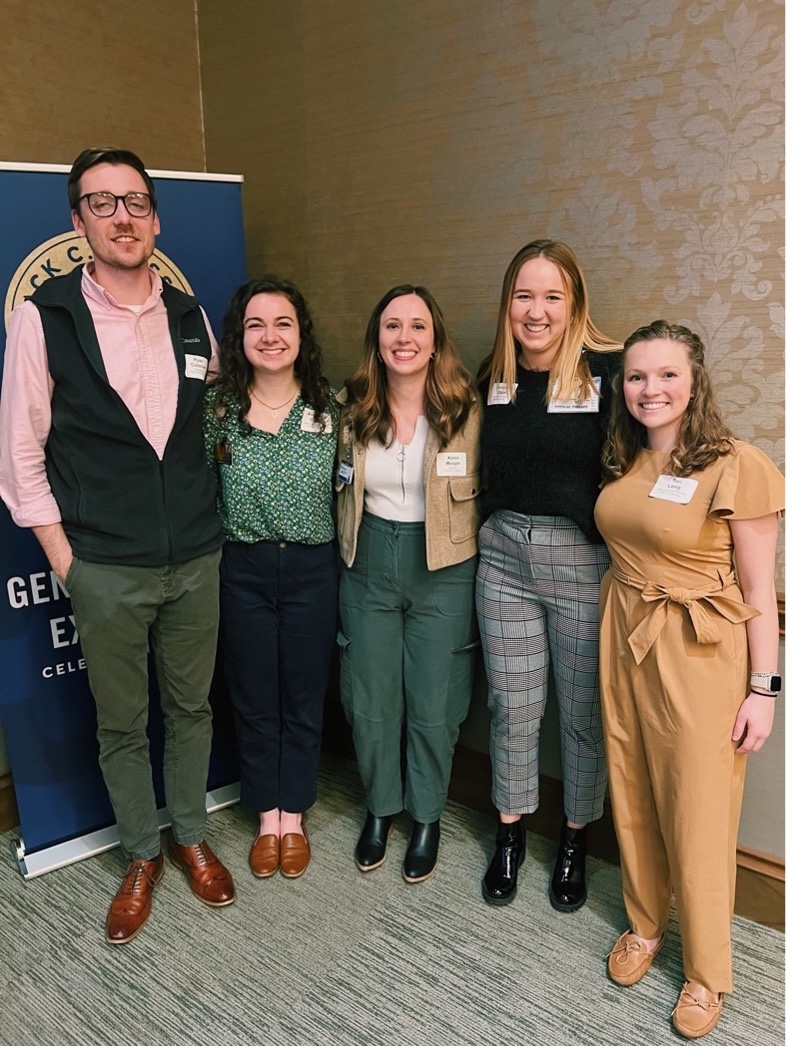Interprofessional workshop prepares future health care leaders to tackle complex disabilities through collaborative care
Belmont University recently hosted an innovative interprofessional student workshop, "Assessment of Children with Neurodevelopmental Disabilities," bringing together eighty students and faculty from Belmont University, Vanderbilt University, Meharry Medical College and Tennessee State University. This unique collaboration reflects a growing trend in health care education aimed at improving patient outcomes through integrated care.
The workshop, focused on interprofessional collaboration across the continuum of care, stands out from traditional siloed educational methods by immersing students in theoretical cases that mirror real-world challenges. This innovative approach prepares future health care professionals to provide more comprehensive, coordinated care for children with complex neurodevelopmental disabilities.
Sponsored by the Vanderbilt Consortium Leadership Education in Neurodevelopmental Disabilities (LEND) Program, the event aligns with broader health care industry goals of fostering interdisciplinary teamwork. The LEND Program, which prepares graduate-level and post-graduate health professionals in 15 specialties, aims to cultivate leaders who can navigate the intricate landscape of neurodevelopmental care.
 Five LEND Long-Term Trainees, including Victoria Long from Belmont's Occupational Therapy Doctorate Program and Samantha Glaze from the Vanderbilt and Belmont University Pediatric Residency Program, led and facilitated the workshop. Their involvement underscores the program's commitment to hands-on leadership development.
Five LEND Long-Term Trainees, including Victoria Long from Belmont's Occupational Therapy Doctorate Program and Samantha Glaze from the Vanderbilt and Belmont University Pediatric Residency Program, led and facilitated the workshop. Their involvement underscores the program's commitment to hands-on leadership development.
“The event allowed for a unique experience to learn and collaborate within an interdisciplinary team, a skill that is invaluable as we progress into our professional careers,” shared Long.
Dr. Lorry Liotta-Kleinfeld, Professor in the School of Occupational Therapy at Belmont and faculty advisor for the project, emphasized the workshop's relevance to current health care practices.
"The workshop provided a wonderful opportunity for students to engage in interprofessional dialogue and care collaboration in a low-stakes environment with a common goal of developing skills for a safer, more effective and equitable client and family-centered health care system," she shared.
The LEND Program's intensive training, requiring at least 300 hours during the academic year, exemplifies the depth of preparation needed to address the complex needs of children with neurodevelopmental disabilities. This comprehensive approach aligns with the health care industry's move towards more specialized, yet integrated care models.
As the health care landscape continues to evolve, programs like LEND play a crucial role in shaping the future of patient care, particularly for vulnerable populations such as children with neurodevelopmental disabilities.
Physical or occupational therapy students interested in participating in the Long-Term LEND trainee program can contact or Dr. Liotta-Kleinfeld or Dr. Nancy Darr, PT, who serve as Core Faculty for the LEND Program.
Learn More
Learn more about the program in this story

